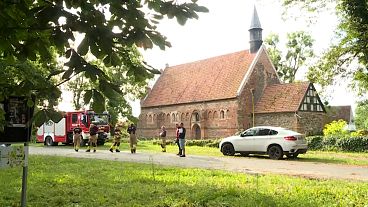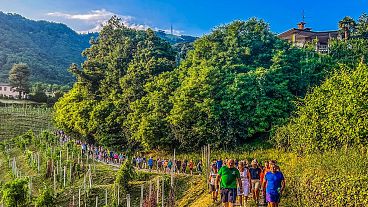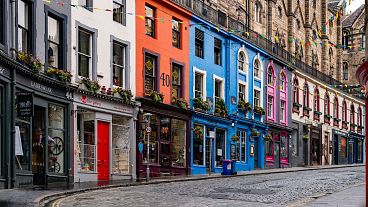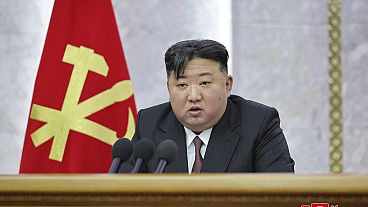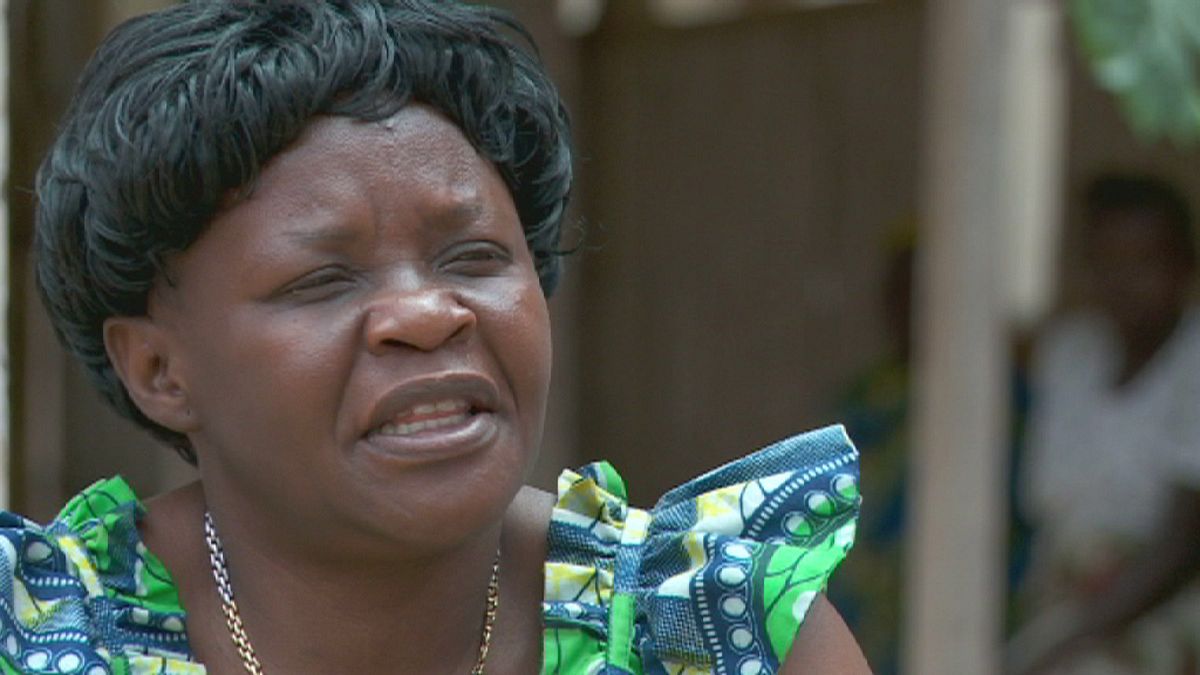Ituri is a region in the north-east of the Democratic Republic of Congo, where Noella risks her life to help women who have endured all sorts of traumas as a result of war, and who still face violence every day.
Noella said: “Women contribute a lot to the peace process. They are the mothers at home. They can easily influence their households. And when you have influence in your home, you may also have influence outside. Women are a force which can change the world.”
Noella is one of thousands of displaced people who have ended up in the city of Bunia during the war. She is the coordinator of the Sofepadi Association, which is supported by the swiss branch of NGO Doctors Without Borders. The organisation promotes peace between communities, and manages a medical centre. The day starts with an assembly to educate women about AIDS and other sexually transmitted diseases. We were asked not to show the faces of these women, because so many are survivors of rape.
Sofepadi provides free medical care and psychological help. Noella explained: “Some people who took up arms are now back in civilian life, and mixing with the population. Some of them continue attacking women.”
Every week, the psychologists see a dozen victims of rape, mainly women, some men, and lots of children. But the women from Sofepadi are on a mission to change mentalities.
Noella said: “Often here, husbands cannot admit that a wife has been assaulted against her will. They tend to say: “Well, why didn’t you defend yourself?” Sometimes they throw their wives out. And when they do, we try to help them survive.”
The organisation runs training courses for these women in several villages around the region. As well as promoting social and economic re-integration for rape survivors, Noella fights for their judicial rights.
Noella said: “The community is beginning to understand that a rape case cannot be solved by an informal arrangement. The perpetrators must be taken to court. At the beginning it was really difficult. Women were afraid of reprisals. If a woman does manages to sue, once the culprit is released and gets back to the village, he often attacks his victim again.”
Convictions are still rare, especially given the huge number of cases, and families often seek direct financial compensation, although this is illegal. The judicial process has started however, although it is not without risks for the people helping survivors through the legal process.
Noella says: “In 2008, I had problems. Armed men came to my house and threatened me. They wanted my laptop. But I knew it contained data about rape victims. So, I tried to resist. And when I said no, they shot me in the leg, and hit me on the head with a machete. When they got the laptop, they left.”
After that attack, Noella and her family moved house. But she refused to give up the fight. She says her main worry is the lack of institutional finance, once Doctors Without Borders stops funding the association.
Noella said: “Even if I stay at home, if somebody wants to try and kill me, they will. This threat has given me more courage. I can’t be afraid, I can’t give up on all the great work we’ve done with the women. All that progress we’ve made. We can’t stop. We’ll keep on fighting, yes.”
Caddy Adzuba is also part of the struggle. She’s a journalist working for peace. Meet her in the final part of our Congolese edition of Women and War.

